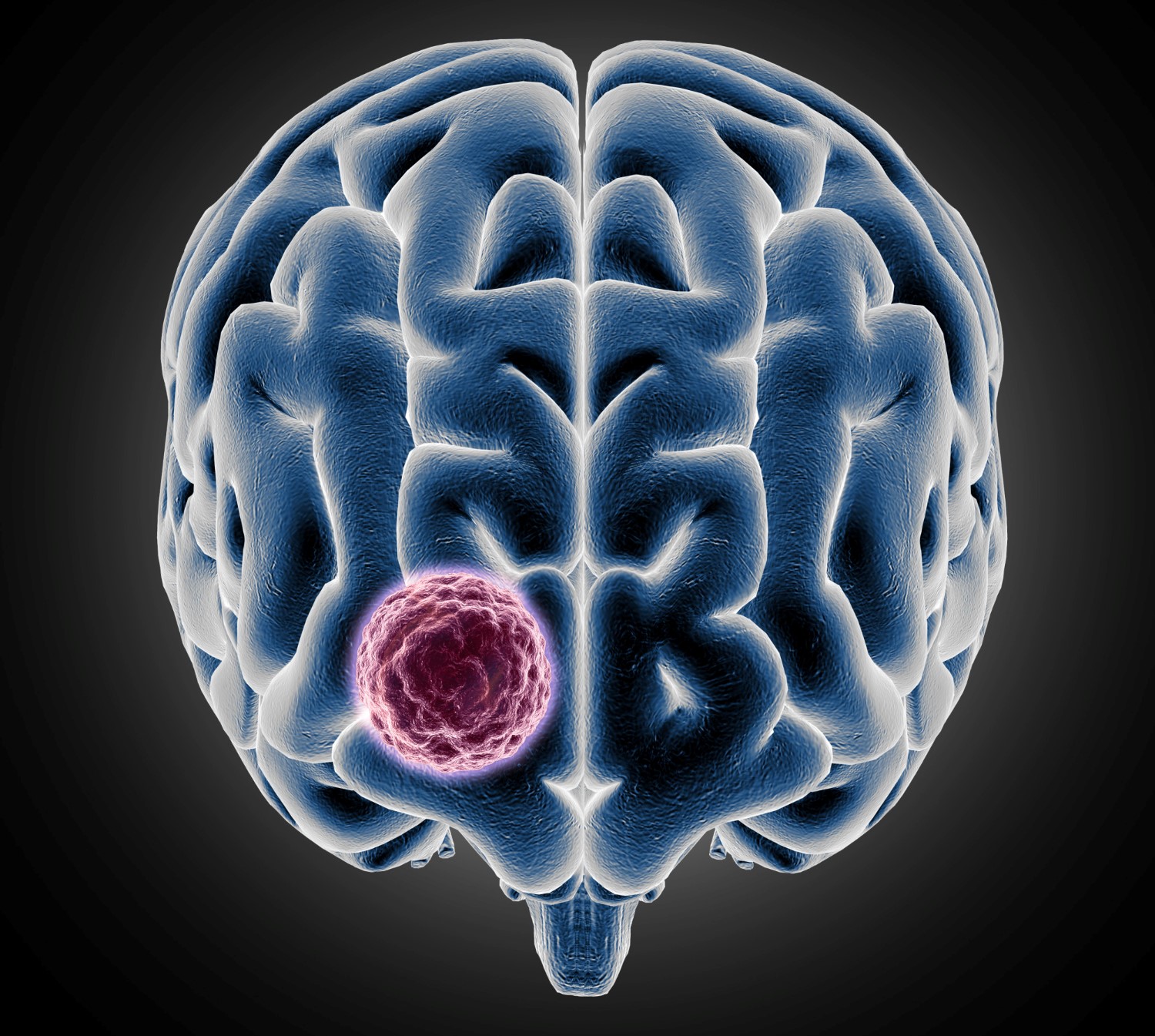Brain tumours are abnormal growths of cells that occur within the brain or the surrounding structures. These tumours can originate from the brain tissue itself (primary tumours) or spread to the brain from other parts of the body (secondary tumours or metastatic brain tumours). They can be either benign (non-cancerous) or malignant (cancerous).
In this article, we’ll be going over the different types of brain tumours, and the early signs and symptoms to look out for so that you can take the necessary steps towards early intervention and improved prognosis.
Types of Brain Tumours
A brain tumour refers to an abnormal growth of cells in the brain or its surrounding structures. These tumours can arise from different types of cells within the brain, including the nerve cells, supportive cells, blood vessels, or even the protective coverings of the brain.
There are many types of brain tumours, each classified based on its origin, behaviour, and characteristics. Some of the common primary types of brain tumours include:
Gliomas: These tumours originate from the glial cells, which provide support and nourishment to the neurons. Gliomas are further classified into subtypes such as astrocytomas, oligodendrogliomas, and ependymomas.
Meningiomas: Meningiomas develop in the meninges, which are the protective membranes surrounding the brain and spinal cord. They are usually benign and slow-growing, but some may exhibit aggressive behaviour.
Pituitary adenomas: These tumours develop in the pituitary gland, a small gland located at the base of the brain. They can affect hormone production and cause various hormonal imbalances.
Medulloblastomas: Medulloblastomas are fast-growing tumours that primarily occur in the cerebellum, the part of the brain responsible for coordination and balance. They commonly affect children.
Schwannomas: Schwannomas arise from Schwann cells, which produce the protective covering (myelin) around nerve fibres. They often occur in the cranial nerves, especially the vestibular nerve responsible for balance and hearing.
Risk Factors Associated with Brain Tumours
While the exact causes of brain tumours are often unknown, certain risk factors have been identified. These include:
Age: Certain types of brain tumours are more common in specific age groups. For example, medulloblastomas are primarily seen in children, while gliomas are more common in adults.
Exposure to ionizing radiation: Previous exposure to high levels of ionizing radiation, such as radiation therapy for other cancers or radiation accidents, can increase the risk of developing brain tumours.
Genetic factors: In some cases, specific genetic conditions, such as neurofibromatosis, tuberous sclerosis, Li-Fraumeni syndrome, and von Hippel-Lindau syndrome, can predispose individuals to brain tumours.
Family history: Having a family history of brain tumours may slightly increase the risk of developing one.
Environmental factors: Some studies suggest a potential association between certain environmental factors, such as exposure to certain chemicals or electromagnetic fields, and an increased risk of brain tumours. However, further research is needed to establish definitive links.
Early Signs and Symptoms
Early detection of brain tumours relies on recognizing the following common signs and symptoms. While these indicators may not point to a brain tumour, they warrant a medical evaluation from a neurosurgeon if they persist or worsen.
Headaches and Migraines
Headaches are a frequent complaint among individuals with brain tumours. These headaches may be persistent, severe, and differ from typical headaches. They often occur in the morning or upon waking and may worsen with physical activity or changes in body position. Additionally, brain tumour-related headaches may not respond to over-the-counter pain medications.
Seizures and Convulsions
Seizures and convulsions can be indicative of brain tumours, particularly when they appear suddenly in individuals without a history of seizure disorders. Seizures may manifest as uncontrollable jerking movements, loss of consciousness, or temporary confusion. If seizures occur, medical attention should be sought promptly.
Changes in Vision and Hearing
Brain tumours can affect sensory functions, leading to changes in vision and hearing. Visual disturbances may include blurred vision, double vision (diplopia), or loss of peripheral vision. Similarly, hearing problems such as ringing in the ears (tinnitus) or hearing loss may occur.
Cognitive and Behavioral Changes
Brain tumours can impact cognitive function, resulting in memory problems, difficulty concentrating, and impaired decision-making abilities. Behavioural changes like mood swings, irritability, personality changes, and depression can also be observed. These alterations may occur gradually and be initially attributed to other causes, making their recognition challenging.
Motor Coordination Difficulties
Brain tumours can disrupt motor coordination and balance. Individuals may experience unexplained clumsiness, difficulty walking or maintaining balance, muscle weakness, or a lack of coordination in fine motor tasks. These symptoms may resemble those of a stroke and should be evaluated promptly.
Nausea and Vomiting
Persistent nausea and vomiting, unrelated to other gastrointestinal issues, can be an early sign of brain tumours. These symptoms may worsen in the morning or after changes in body position, such as standing up. If nausea and vomiting occur without a clear cause, medical attention is advised.
Fatigue and Drowsiness
Unexplained fatigue, excessive drowsiness, or a sudden increase in the need for sleep may indicate an underlying brain tumour. These symptoms can persist even with sufficient rest and may impact daily functioning.
Signs and Symptoms According to Tumour Location
The signs and symptoms of brain tumours can vary based on the specific location within the brain. Understanding the potential manifestations according to tumour location can provide valuable insights for early detection and diagnosis. Here are the common signs and symptoms associated with tumours in different brain regions:
Frontal Lobe tumours
Frontal lobe tumours may lead to the following signs and symptoms:
- Changes in personality and behaviour
- Difficulty with concentration and decision-making
- Impaired judgment and problem-solving abilities
- Weakness or paralysis of specific body parts
- Difficulty with speech and expressive language
- Loss of smell
- Seizures (less common)
Temporal Lobe Tumours
Tumours in the temporal lobe can manifest in the following ways:
- Seizures, often characterized by strange sensations, déjà vu, or hallucinations
- Memory loss and difficulty forming new memories
- Language difficulties, such as difficulty understanding spoken or written words
- Disturbances in vision and hearing
- Emotional changes and mood swings
Parietal Lobe Tumours
Parietal lobe tumours may result in the following signs and symptoms:
- Sensory abnormalities, such as tingling, numbness, or loss of sensation in specific body parts
- Difficulty with spatial awareness and coordination
- Challenges with reading, writing, and mathematical calculations
- Language difficulties, specifically in understanding words and sentences
- Seizures (less common)
Occipital Lobe Tumours
Occipital lobe tumours may present with the following signs and symptoms:
- Vision problems, including blurred vision, visual field defects, or visual hallucinations
- Difficulty recognizing objects, faces, or colours
- Impaired visual processing and perception
- Headaches related to visual tasks or eye movement
- Seizures (less common)
Brainstem Tumours
Tumours located in the brainstem can cause the following signs and symptoms:
- Difficulties with coordination and balance
- Weakness or paralysis in the face, arms, or legs
- Problems with eye movements and control
- Impaired speech and swallowing
- Sensory changes, such as numbness or tingling
- Cranial nerve dysfunction, leading to facial weakness, hearing loss, or difficulty with taste and swallowing
Cerebellar Tumours
Cerebellar tumours may exhibit the following signs and symptoms:
- Loss of coordination and balance
- Unsteady gait and difficulty walking
- Tremors or involuntary movements
- Muscle weakness
- Slurred speech and difficulty articulating words
- Nystagmus (involuntary eye movement)
- Headaches and vomiting, particularly in the morning
This list of signs and symptoms is not exhaustive, and individuals may experience a combination of various symptoms depending on the tumour’s size, growth rate, and proximity to surrounding structures. If any of these specific signs and symptoms are observed, seek prompt medical evaluation for an accurate diagnosis and appropriate management.
When to Seek Medical Attention
If you or someone you know experiences persistent or worsening symptoms that may be indicative of a brain tumour, consider taking them seriously and seek early jmedical attention. While these symptoms may not always be a direct indication of a brain tumour, early detection can significantly impact treatment outcomes.
Conclusion
Recognizing the early signs and symptoms of brain tumours is crucial for timely detection and intervention. Headaches, seizures, changes in vision and hearing, cognitive and behavioural changes, motor coordination difficulties, nausea and vomiting, and fatigue are key indicators that should not be overlooked. By staying vigilant and seeking medical attention when these symptoms persist or worsen, individuals can increase the chances of early diagnosis and appropriate treatment of brain tumours.



